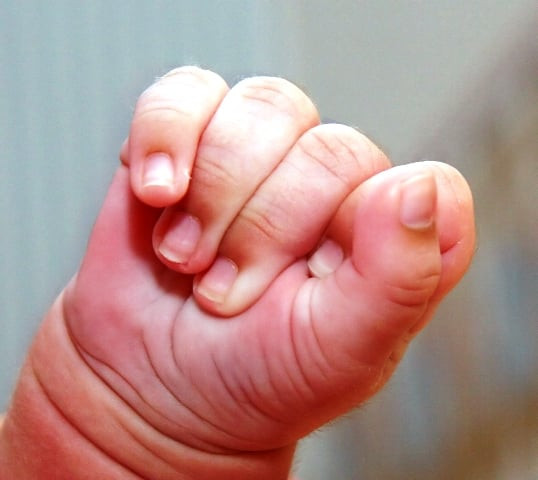Child protection: ‘Islam has clear teachings on rights’
Conference highlights reproductive heath issues.

Child protection: ‘Islam has clear teachings on rights’
“I dream of a Pakistan, an Asia, a world where every pregnancy is planned and every child conceived is nurtured, loved, educated and supported.”
Nazoora Ali, The Rutgers-World Population Foundation policy advocacy programme manager quoted former prime minster of Pakistan, the late Benazir Bhutto, on Wednesday at a conference on child protection and reproductive rights of the youth.
The conference on reproductive Health Rights of Youth was organised by Sahil, a non-government organisation that works against child abuse.
Ali said that Bhutto had spoken these words in 1994 at an international forum about population and development. Ali made a presentation and explained policies that protected the rights of the children.
The conference was divided into two sessions. In the first session, the participants discussed child protection systems in the Punjab after the 18th Amendment. The second session was about reproductive health and rights of the youth.
Raheeq Ahmad Abbasi said that acknowledgement of human rights was one of the most important concepts in Islam.
He said, “Arabic is not our first language. We read the Holy Quran, but unfortunately, very few people make an effort to understand it.”
He explained that the Quran had clear teachings and instructions on human rights. However, he said, laws and regulations originating in foreign cultures could not be implemented due to their conflict with the local cultures and religion. “We need to localise them according to our society and Islam,” she added.
MNA Dr Donia Aziz said that a major change was required in the ways people behaved in the society. “Looks, social class, gender or caste are not important. What’s more important is that everyone treat others as human beings first,” she said.
Dr Saeed Elahi, the parliamentary secretary on health, was also present at the conference. He said that in the government had increased the health budget from Rs11 billion to Rs45 billion.
To a question about the deserted district headquarters (DHQ) hospital in Narowal, Elahi said that he realised that DHQ hospitals in some areas lacked doctors and were not functioning the way they should.
He said the government was working towards making the situation better.
To another question, Elahi, also admitted that around 30 per cent of the THQ hospitals across the province were not functioning properly.
Towards the end of the conference, a documentary by Amna Akhsheed, who works with the Rahnuma NGO, was screened.
The documentary was based on the life of a 14-year-old girl, Sana, in Khyber Pakhtunkhwa, who is forcibly married to an already married truck driver, who wants a child. It depicted the misery of the girl who is taken to Kabul and beaten up by the husband and his family. Sana somehow manages to escape with help from an NGO and starts working for them.
Dr Amna Buttar, Begum Zakia Shahnawaz, several human rights activists, students and doctors attended the conference.
Published in The Express Tribune, April 28th, 2011.



















COMMENTS
Comments are moderated and generally will be posted if they are on-topic and not abusive.
For more information, please see our Comments FAQ